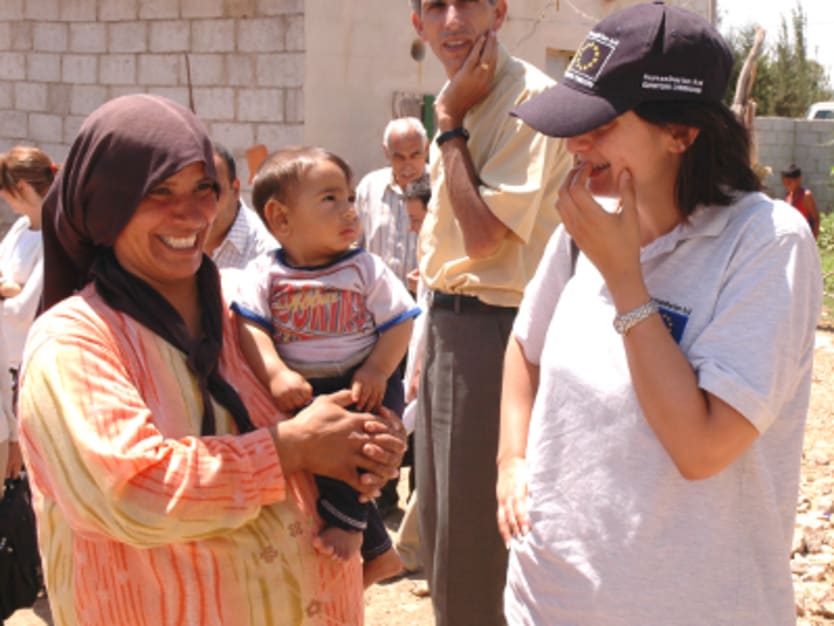
The head of operations at the Office of the European Union Representative for West Bank and Gaza Strip clarified that the bloc’s aid is not linked to the Palestinians’ participation in Middle East peace negotiations.
“Aid is being given to eliminate poverty amongst the Palestinian people, to guarantee central public services, to strengthen the institutions of an emergent Palestinian state. Those things need to happen irrespective of whether negotiations go forward or not,” Roy Dickinson told Ma’an on Aug. 19.
Dickinson is reacting to the Palestinian Authority’s accusations that donor countries are withholding aid to pressure Palestinians into participating in direct peace talks. He said it would be “difficult to imagine” the EU tying assistance to negotiations.
“We are using this money to pursue (Prime Minister Salam) Fayyad’s two-year plan to build a Palestinian state. It makes no sense to cut off or reduce money if we want that aid to be fulfilled,” he added.
Meanwhile, Palestinians are also lamenting the lack of aid from rich Arab countries, according to Reuters.
“The Arabs are not paying. We urge them to meet their financial pledges,” said Saleh Rafat, a member of the Palestine Liberation Organization’s executive committee.
Figures released by the Palestinian Finance Ministry and seen by Reuters showed the territories have received USD583.5 million in budget support so far. Only 22 percent of that amount came from Arab donors. The majority of funds were from international donors, including the EU and United States.
Since 2007, Saudi Arabia and the United Arab Emirates have been the main Arab donors to the conflict-ridden territories. In 2010, however, both nations’ contributions have been significantly cut.
Some Palestinian officials think Arab donors might be using aid to push Palestinian factions Fatah and Hamas into working out a peace deal, the news agency reports.








